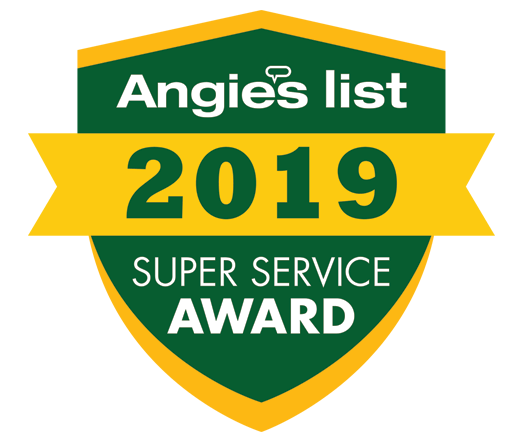

MOVING CHECKLIST
After assisting with all types of moving services, our national moving company has created this easy-to-follow moving checklist. These moving tips will help you be fully prepared for moving day. USA Family Moving’s printable moving checklist includes everything you should do before your moving date and during relocation.
Click Here to Download Your Printable Moving Checklist PDF
USA Family Moving Checklist
Our experienced and professional movers and packers have created the following moving checklist to make your relocation transition easier. No matter the load size or distance, let our national movers and packers assist you with this moving guide.
Two Months Before the Month
Schedule your move with our full-service moving company before our calendar fills up. Especially for larger moves or commercial moves, the sooner you call, the better we can accommodate your preferred time and date. Speak with one of our customer support representatives to discuss the budget, timeline, and moving services required such as moving labor, transportation, or specialty installations.
If you require an emergency move, do not hesitate to call our emergency moving services to help accommodate your emergency relocation needs.
Get Organized!
- Create a file of your moving details, documents, receipts, and more.
- Start using frozen food, condiments, or cleaning supplies that you don’t want to take with you.
- Create an inventory list with categories for your items.
- Categories should include items to get rid of or donate, items for the movers, and items you will take with you during the move.
- Make a list of all those you need to notify about the move and change of address. This could include friends, employers, creditors, subscriptions, etc.
- Make necessary preparations for storage if needed. Consult with one of our storage facilities for storage solutions.
- Gather all your personal records including accounting, house deed, insurance, medical, legal, school records, stocks, vehicle registration, will, and other important papers. Place in a designated secure and easily accessible bag or box incase needed.
- Read from our expert moving advice to help assist you through the moving process.
Five Weeks Before Your Move
- Submit a Change of Address form to the Post Office.
- Call and confirm dates to disconnect and connect all utilities including cable, electric, gas, internet, oil, trash collection, and water to your new residence. Remember to keep utilities connected at your current home until the end of your moving day.
- Have a yard or garage sale to sell items you no longer want. This can help with moving expenses. Coordinate to donate any remaining items to Goodwill, Salvation Army, or a local charity.
One Month Before Your Move
- Create a moving plan of where you want your furniture to be placed in your new home. This makes the move-in process more efficient for our movers and packers.
- Moving out or into a building with elevators? Contact Building Management to schedule the use of elevators and inquire about any guidelines that must be followed.
- Start packing! Begin with nonessential items or items you will not need until after your relocation. Our professional packers can deliver exceptional and affordable packing services if needed.
- Create an inventory list. This will help keep track of all your residential belongings.
- Properly pack and label your moving boxes to keep your items organized and secure during transit Labeling your moving boxes will help keep the move-in process efficient, establish priority boxes to unload and determine which boxes are heavy.
- Any fragile or valuable objects? Purchase our premium moving supplies to properly secure your belongings.
- Coordinate with special transportation or babysitting for your pets or children on moving day.
Two Weeks Before Your Move
- Contact or call our veteran-owned moving company to confirm everything for your move including moving services, transportation, budget, and timeline.
The Week Before You Move
- Go over your moving checklist to make sure everything is confirmed or hasn’t been overlooked.
- Clean out and defrost your refrigerator or freezer. Disconnect electronics and appliances for the move.
- Pack a bag of essentials. Your essentials bag should include things you will do during your long-distance move. While your belongings are in transit, it’s smart to carry a bag with personal items including important documents, medications, wallet, phone charger, sweater or blanket, jewelry, or other personal belongings that you want easily accessible.
- Call to confirm that the utilities are connected in your new home.
Moving Day
- Wake up early! You don’t want to feel rushed on moving day. Strip your beds and pack up any last-minute items.
- Make sure you are home when your movers and moving labor arrives to answer any questions. This will help the relocation process move swiftly and efficiently.
- Read through Bill of Landing & Inventory carefully before you sign. Then hold on to them in your essential bag until the move is completed and charges paid.
- Be prepared to pay the mover before unloading. Have payment on hand for your moving expenses.
- Double-check your inventory lists as moving boxes are being unloaded and direct the movers to where you would like them to go.
- Once everything has been unloaded, unpack only essentials for the first day or two. Focus on creating a sense of home for you and your family.
After the Move
Tell us how we did! Our team of national movers and packers want to make sure everything went well. Our family-owned company wants you to feel like part of the family. Contact us to give us feedback or schedule a move today!
Click Here to Download Your Printable Moving Checklist PDF
Frequently Asked Questions About Moving Answered
blank
How to Plan a Move?
Well in advance of your moving day, even before you schedule that date, you should complete some preliminary planning. To best plan for a move, you should determine the time you have until your move and the distance you will be moving. Knowing how much time you have will give you a solid framework for your preparation. We designed our moving checklist to fit a two-month time frame, but you can use it regardless of whether you have more time or less time to prepare.
Knowing the distance between your old residence to your new one will inform your search for professional movers. Moving companies need to be properly experienced and licensed to undertake long distance and interstate moves. At USA Family Moving, our movers in Minneapolis and St. Paul movers are well-equipped and licensed to handle any type of move, regardless of distance.
blank
How Much Money Should You Have Saved Up Before You Move Out?
Another thing you should do before moving out is set your budget. You should save enough money to cover your moving costs as well as your first month’s living costs should you move into a rental apartment or home. Save around $1,000 to $2,000 (or more) to cover a security deposit and save a few hundred dollars to cover your starting utility bills and food expenses. Separate from that, save enough to hire professional movers. A DIY move may be the cheapest option, but moving companies also offer competitive rates.
blank
Who Do You Notify of Your Change of Address When Moving?
Before you move out, you have to officially change your address. To do that you can go to USPS.com/move to change your address online for a $1 fee. Confirm the change through your email and you’re done! Another way is to visit your local post office, request a Mover’s Guide packet and fill out the change of address form labeled PS Form 3575. You will receive a confirmation letter at your new address in five business days.
Once you change you address, you should notify a few key parties of the change. Here are just some of the people and organizations you should inform of your move:
- Friends and Family
- Federal and State Tax Agencies
- Social Security Administration
- Utility Companies
- Phone, Cable, and Internet Provider
- Employer
- Bank, Credit Card Company, and Loan Providers
- Insurance Providers
- Subscription Services








